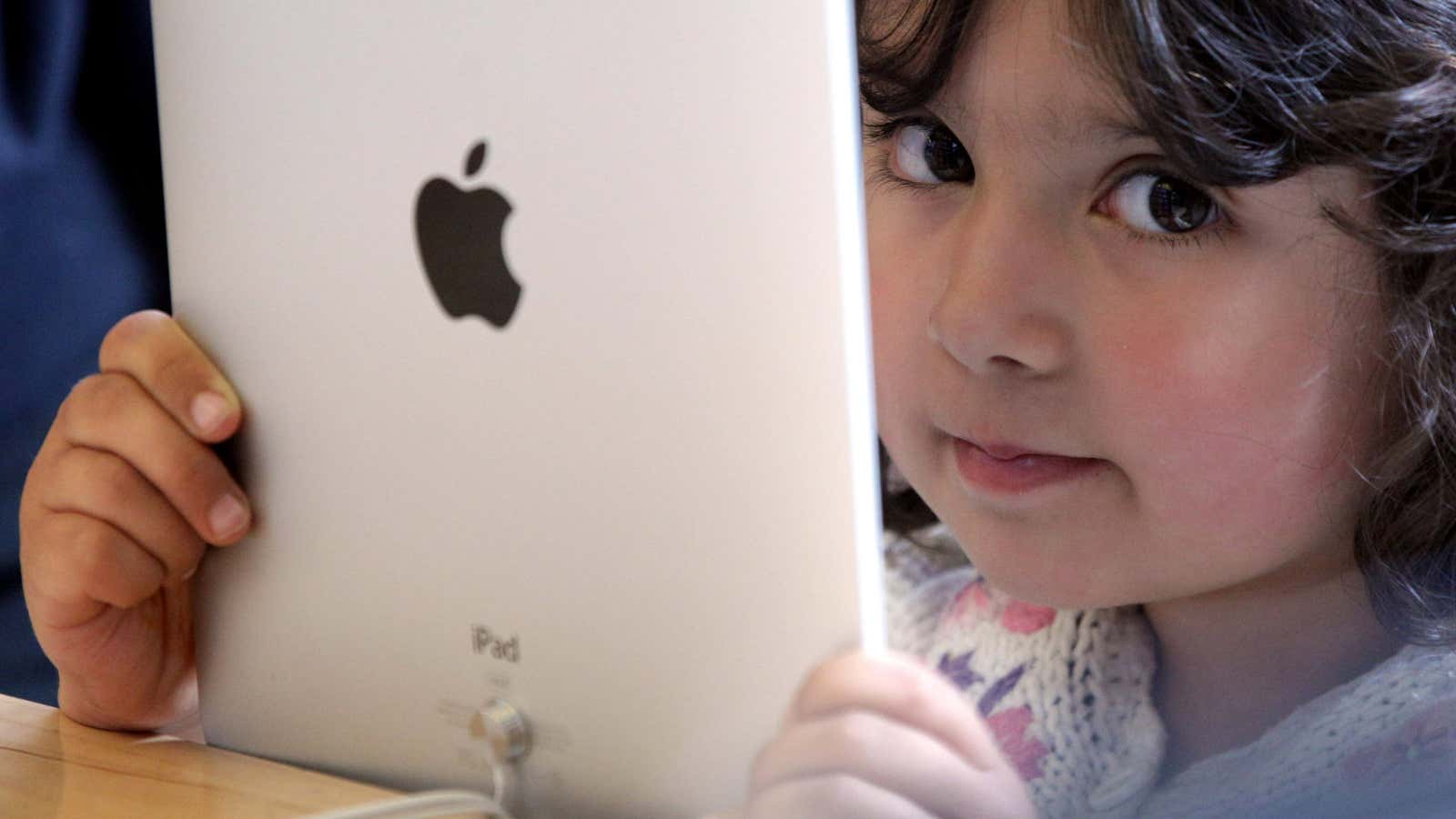Those poor parents who thought the digital age would usher in an era of spotless playrooms and always-occupied kids.
It turns out 70% of parents say that technology (pdf, 4) actually does not make their job easier, according to new research from Northwestern University. Toys, activities and books were most often used to keep children occupied at home or in a restaurant, to calm an upset child, to reward or discipline a child, or to use as an educational tool.
A recent study from Pew Research Center’s Fact Tank found that more than 80% of parents think it’s important to read their children books in print, despite their own habits of e-reading. Actual books reinforce the reading parents themselves experienced as children and offer the tactile turning of the pages, feel of fuzzy animals, and the experience of large illustrations.
This follows suit with a backlash against Baby Einstein, educational videos for children under two, as parents have become more wary of using technology as a babysitter in the name of learning.
In Hanna Rosin’s recent piece for the Atlantic, “The Touch Screen Generation,” she highlights this very anxiety:
Technological competence and sophistication have not, for parents, translated into comfort and ease. They have merely created yet another sphere that parents feel they have to navigate in exactly the right way. On the one hand, parents want their children to swim expertly in the digital stream that they will have to navigate all their lives; on the other hand, they fear that too much digital media, too early, will sink them.
The Northwestern study was performed on a group of more than 2,300 parents in the US who have children aged eight or younger. Many parents would argue this sample size isn’t representative. A colleague told me that every time she walks into a restaurant in New York City, she sees children on iPads and smartphones. To some parents, the portable technology is a godsend. Don Martelli, wrote in Wired, the “Five Reasons the iPad was Made to Keep Parents Sane,” including but not limited to long car trips and rainy days.
TV is still the most widely watched screen (pdf) around the world, and for many decades parents have grappled over whether hours in front of the tube causes attention deficit hyperactivity disorder or other developmental problems. But it seems that many parents are erring on the side of restraint, despite the pervasiveness of these devices.
A 2011 study found that while more than half of children younger than eight have access to iPads, smartphones or other tablets, their usage was still relatively low: five minutes of daily use compared to 29 minutes of reading or being read to.
